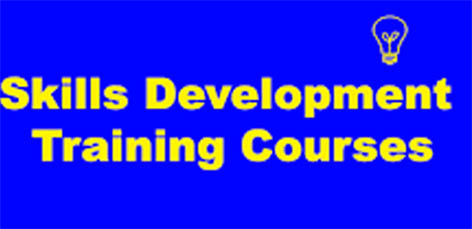Dr. Arshed Iqbal Dar
To provide livelihood and reduction in rural poverty is a paramount goal of the developing countries like India as a good number of the poor population still resides in the countryside. The World Bank, for example, estimates that more than 70 percent of the world’s poor live in rural area. A number of initiatives and strategies have been taken to address this concern besides creation of avenues for employment both under agriculture and non-agriculture sector. In this connection, the then minister of Education, Mohammad Altaf Bukhari, chaired a meeting of officers to review the introduction and implemenation of various skill development courses in schools, colleges and universities of the Jammu and Kashmir on 10th August 2017. During that meeting, the detailed presentation about skill development courses displayed that the Department of School Education has identified new courses and will introduce skill enhancement courses in schools, colleges and universities very soon but the introduction of effective cum fruitful skill enhancement courses is yet to come. No doubt, the skill enhancement courses were introduced in the curriculum of higher education but unfortunately the plan of action cum execution of the same is confined to the four walls of the classrooms, the curriculum of the skill enhancement courses has been designed without experimental approach, without subject experts and more importantly without linkages and bonds with different institutions of skill development and the industrial sectors. As of now, most of the students have opted those skill courses which are easy to pass and in which they secure good grade points only but unfortunately, after getting good grades in their opted skills, they don’t know how to translate the knowledge into applications which is the heart and soul of the skill enhancement course. In this connection, introduction of projects and the involvement of the students in those projects which are related to skill enhancement courses in collaboration with different institutions of skill development is the mantra to achieve the goal.
You know, Jammu and Kashmir (UT) has a lot of potential for agro-based industries, which is the meeting place of agriculture, art and industry, ancient culture and civilization, the rich and the poor and it reflects the interdependence of these. One of the oldest agro based industries of Jammu and Kashmir is sericulture and it has been reported to be one of the best suited occupation for ideal growth and development, in order to inculcate the impact of these agro based industries among the students and strengthening the rural ecconomy, our policy makers must develop scientific methodology to introduce such courses in the curriculum.
Likewise, we have apiculture – an agro-industry, which uses bees as micromanipulators to harvest nectar and pollen from plant sources to produce honey and to store it in beehives. You know, beekeeping is a technology that is simple, easily accessible and affordable, especially in rural areas. It utilizes only the naturally available resources which otherwise go waste. The potential of beekeeping is yet to be tapped for increasing opportunities for gainful employment and income generation in the rural areas, in spite of which apiculture continues to remain a minor cottage industry, possibly because of the poor scientific support and poor organizational infrastructure provided to this industry.
One more novel concept can be introduced in the curriculum of schools, colleges and universities and that is ethnobotany and ethnopharmacology. Well, Indian subcontinent has historical tradition of using medicine of herbal origin that is often considered to be protective and curative with minimal side effects. Ethnobotany and ethnopharmacology are interdisciplinary fields of research that look specifically at the empirical knowledge of indigenous peoples concerning medicinal substances, their potential health benefits and their health risks associated with such remedies. As can be seen, many of the plant derived pharmaceuticals and phytomedicines currently in use were used by native people around the world. Some of this knowledge has been documented and codified or studied scientifically. Also of the hundreds of thousands of species of living plants, only a fraction has been investigated in the laboratory. The importance of ethno-botanical inquiry as a cost-effective means of locating new and useful tropical plant compounds cannot be overemphasized. Most of the secondary plant compounds employed in modern medicine were first discovered through ethno-botanical investigation.
Once we start identifying the sectors having the potential to generate employement then our land is having potential sectors of handicrafts, construction, tourism, hospitality, food processing and a lot more but it requires a skilled workforce and the introduction of these courses as the skill development courses in educational institutions will help us in the generation of employment.
Moreover, Principal Secretary, School Education Department, Dr. Asgar Hassan Samoon is well disposed and in high spirits to translate the research into application and in this context, he has launched the online program in which a good number of shortlisted candidates will receive skill trainings in the field of cyber security, GST, tailoring (Masks, PPEs), internet web designing and many courses in hospital management. Furthermore, his commitment to upgrade the educational institutions is the talk of the town and to introduce skill development and job oriented courses like robotics, machine engineering, electrical vehicle designing in the educational institutions is the novel initiative to upgrade the educational institutions and generate employement. Now, everybody is eagerly waiting to observe not only the morphological changes but the anatomical changes of the education system of Jammu and Kashmir.
In drawing things to a close, dire need is to create a knowledge through research and to translate the created knowledge into application but this demands a combo of good strategy and a better execution and we are hopeful, our policy makers will extract the context out of this text for the benefit of mankind.
(The author is Assistant Professor, Govt. Degree College Sumbal Sonawari Jammu and Kashmir)
feedbackexcelsior@gmail.com
Trending Now
E-Paper


